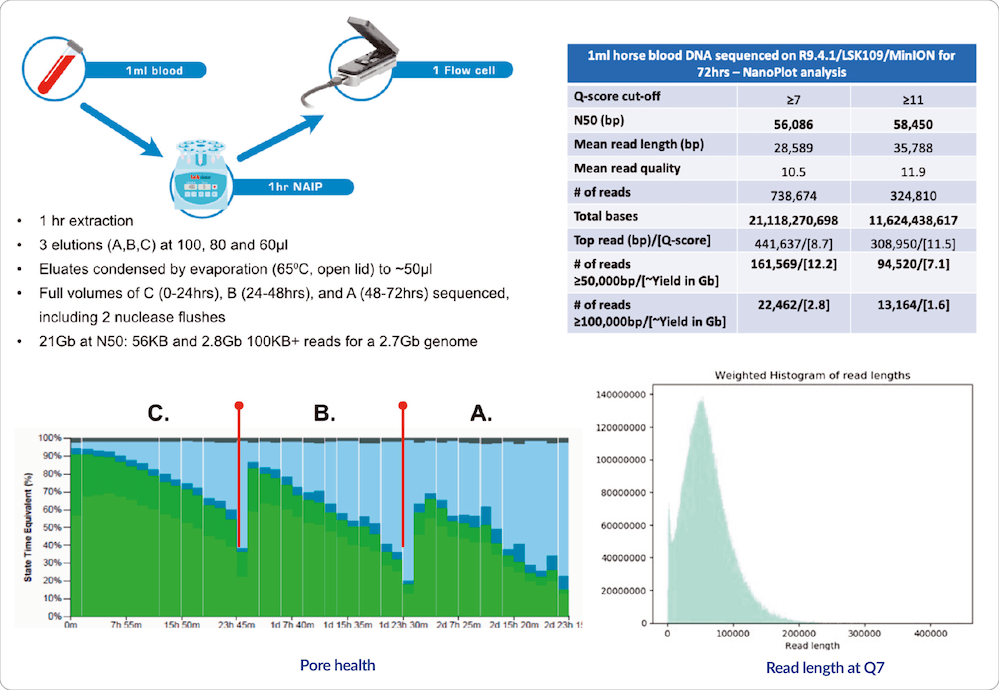Channels
Special Offers & Promotions
RevoluGen Announces Positive Validation Data for its DNA Extraction Kit From Quadram Institute
The UK genomic tools developer, RevoluGen Ltd.,has announced new data validating the performance of its high-molecular weight (HMW) DNA extraction kit, Fire Monkey.
Scientists at the UK’s Quadram Institute together with collaborators in Pakistan have published positive results from Illumina whole genome sequencing (WGS) for extensively drug-resistant (XDR) Salmonella Typhi characterization in Pakistan, using Fire Monkey.
Salmonella Typhi are bacteria which infect the intestinal tract and the blood, causing typhoid fever. In 2016, an outbreak of a strain of the bacteria resistant to many of the usual antibiotics used to treat the disease (XDR S. Typhi) was reported in the Sindh province of Pakistan. Further spread of the outbreak is of serious concern due to the limited options for treatment. The research involving scientists at the Quadram Institute identified 27 XDR S. Typhi isolates from patients at Jinnah Hospital in Lahore, the capital of the Pakistani province of Punjab, between January and April 2019. All isolates were of the same genotypic background as the outbreak strain from Sindh province, as confirmed by Illumina whole genome sequencing. Importantly the first emergence of XDR S. Typhi in Punjab province was confirmed by this whole genome sequencing and analysis.
“We have found Fire Monkey to be very quick and easy to work with. We are now keen to take advantage of its step-change in length of DNA fragments, thus enabling multiplexed long-read sequencing. We look forward to continuing our relationship with RevoluGen to explore the role of its technology in metagenomic analysis and to explore automation” commented Dr Gemma Langridge, Group Leader, Quadram Institute.
Pieter Haitsma Mulier, CEO of RevoluGen commented “Microbial sequencing is now becoming routine and provides an important tool for disease surveillance, accurate and rapid diagnosis, as well as for monitoring and profiling antibiotic resistance. This publication from the Quadram Institute provides key validation of Fire Monkey/ Fire Flower for use in this field.”
The paper ‘Emergence of Resistance to Fluoroquinolones and Third-Generation Cephalosporins in Salmonella Typhi in Lahore, Pakistan’ by Rasheed et al (2020) is available online from the journal Microorganisms, here.
RevoluGen is a privately held scientific research and development company commercialising molecular tools with a specific focus on rapidly extracting long and pure DNA fragments from cells.
RevoluGen’s Nucleic Acid Isolation and Purification (NAIP) products have particular applications in long-read DNA sequencing for genome assembly and long-range PCR. Fire Monkey significantly improves long-read sequencing results by extracting long-fragment DNA with a simultaneous size selection function built into the protocol that minimises the small-fragment DNA contamination. Used independently, the size selection protocol of Fire Flower can improve the molecular ratio of any extraction kit and is compatible with all sequencing technologies.
The Company headquarters, R&D, manufacturing and direct customer sales and support are based in the UK. RevoluGen serves customers worldwide and has secured agreements with world-leading molecular biology tools companies including Merck KGaA (sales), Cytiva (manufacturing), Tecan (automation) and A4P (logistics).
The Quadram Institute’s mission is to deliver healthier lives through innovation in gut health, microbiology and food and its vision is to understand how food and microbes interact to promote health and prevent disease.
The Quadram Institute is an interdisciplinary research centre at the forefront of a new era of food and health research. It brings together researchers and clinicians under one roof and houses one of Europe’s largest endoscopy units and a clinical research facility.
Based on the Norwich Research Park, the Quadram Institute is a partnership between Quadram Institute Bioscience, the Norfolk and Norwich University Hospitals NHS Foundation Trust, the University of East Anglia and the Biotechnology and Biological Sciences Research Council (BBSRC).
Media Partners



